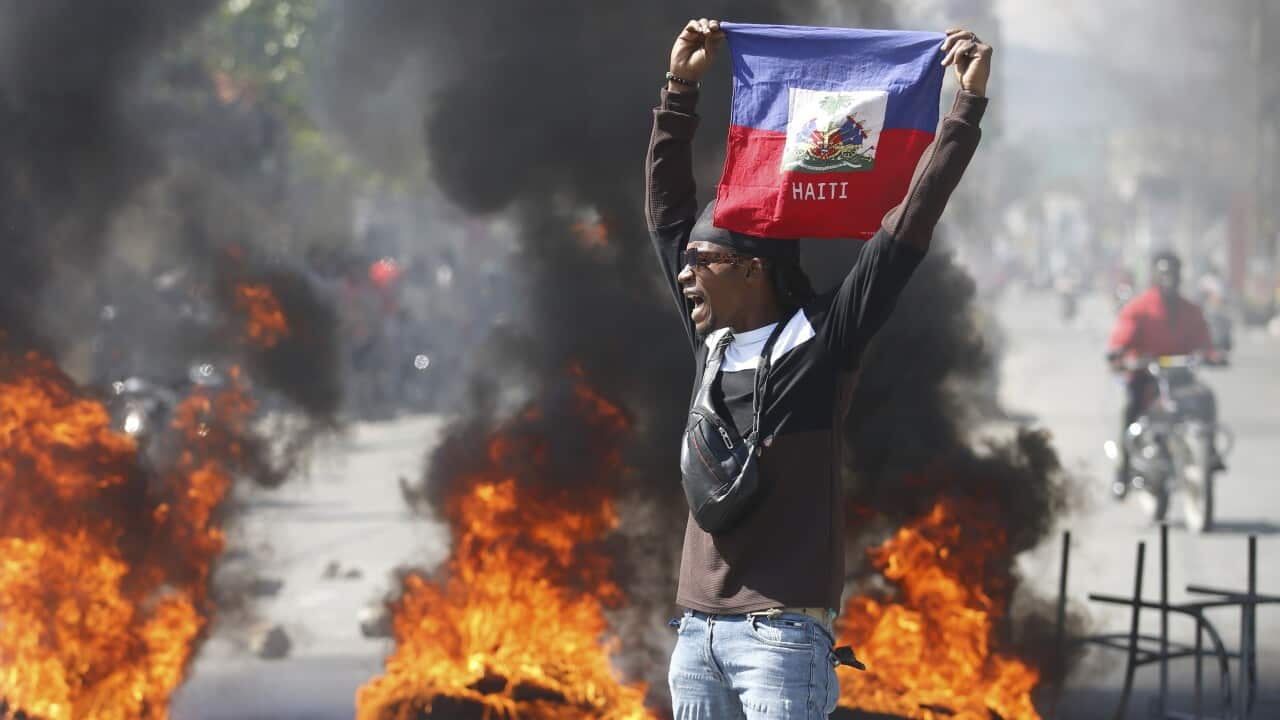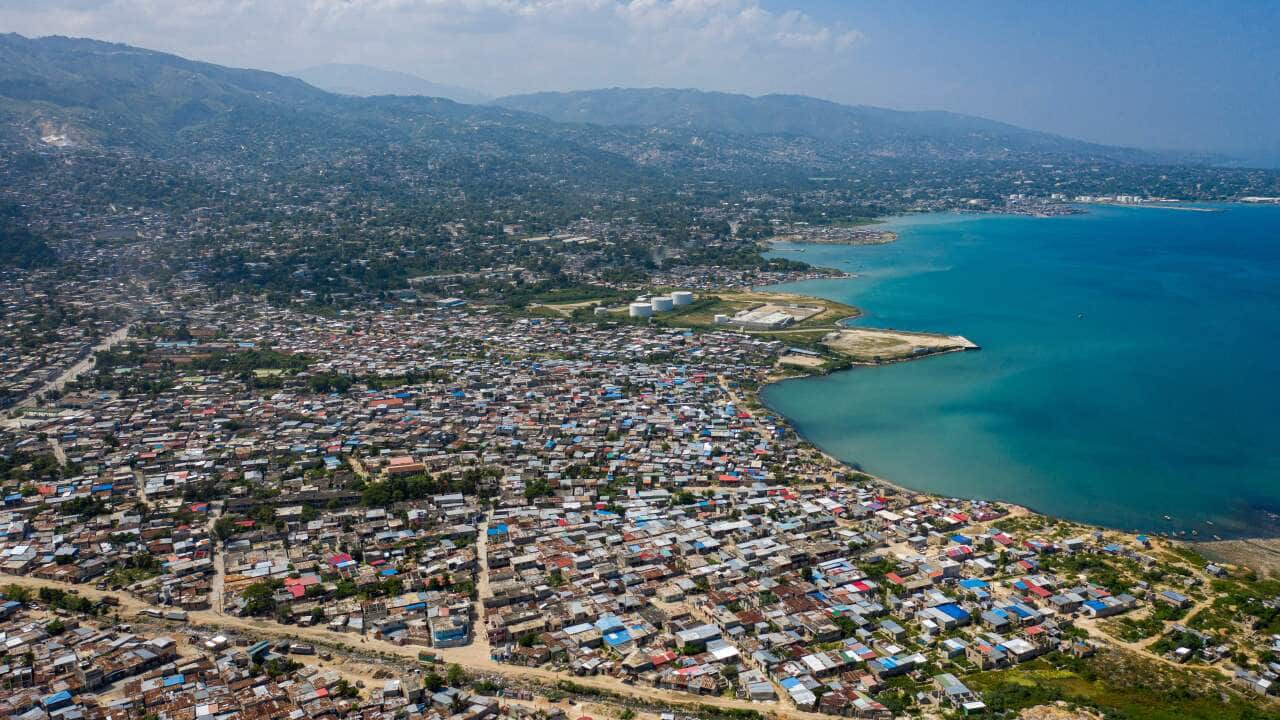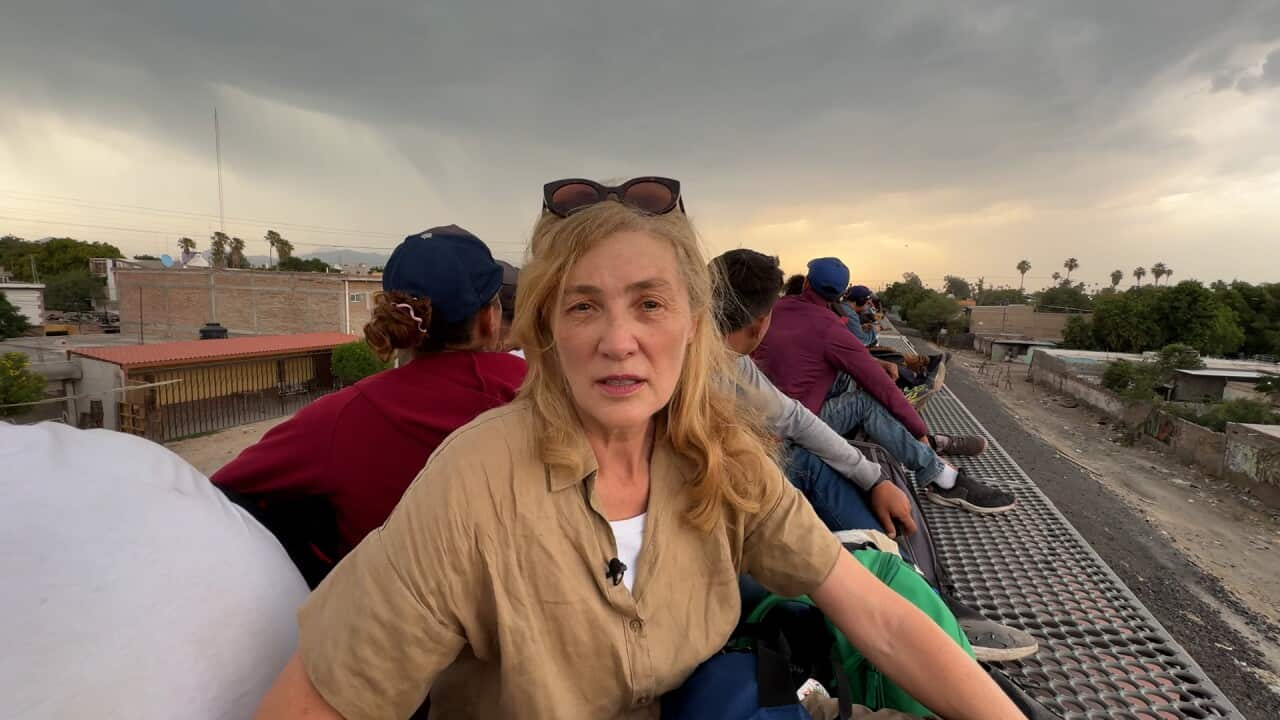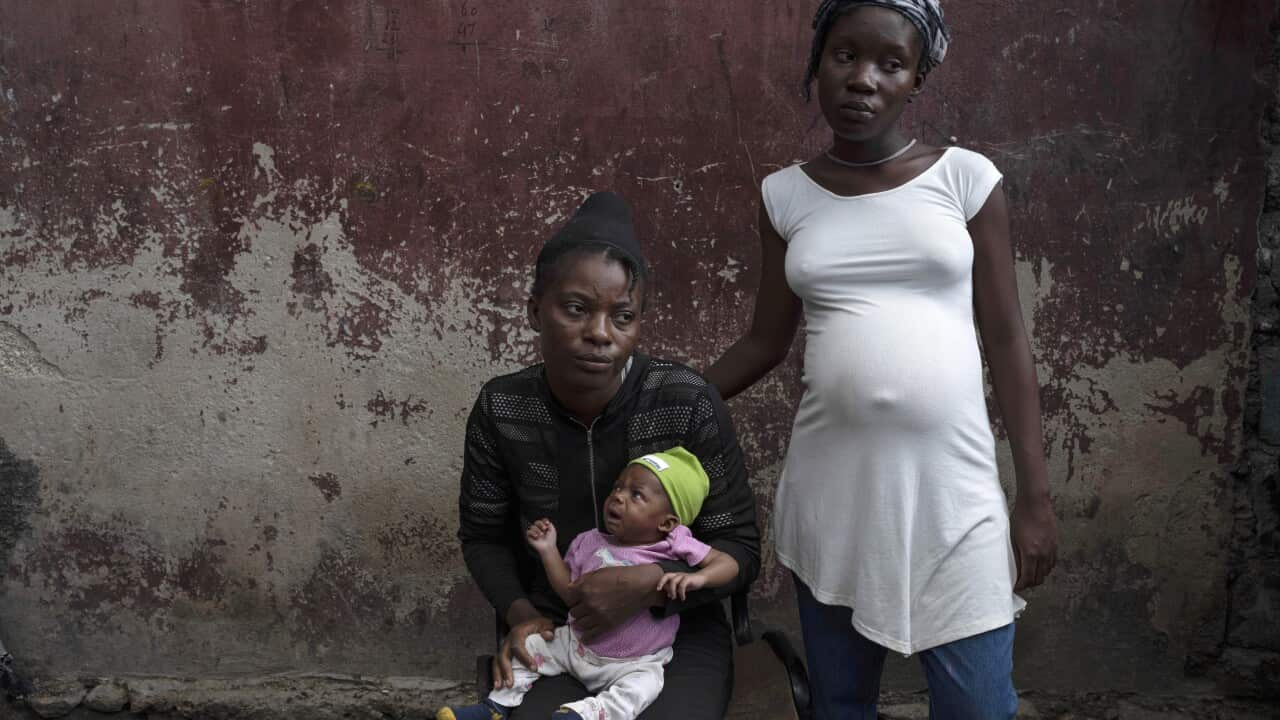Watch Dateline's latest episode from Haiti on 13 May at 9.30pm AEST on SBS and SBS On Demand.
Content warning: This story mentions sexual abuse
Jimmy "Barbecue" Cherizier appears to have put on a few kilos since I saw him last. He's definitely accumulated power — and condemnation.
Cherizier is the undisputed frontman of Haitian gang alliance Viv Ansanm, which the United States designated as a terrorist organisation on 2 May.
I've come to Haiti's capital, Port-au-Prince, to meet not only him but the citizens at the frontline of suffering. At least 85 per cent of the city is controlled by gangs, according to the United Nations.
And they want to fully take over.
Francoise, 38, blames Viv Ansanm — which translates from Haitian Creole as 'Live Together' — for uprooting her family's world.
The mum of two young girls squats on the dirt in one of the many camps for the displaced in Haiti's besieged capital.
She fled here with her husband Ronald, her daughters and her 79-year-old grandma last October after heavily armed men overwhelmed her neighbourhood of Solino. Their solidly built home with a security gate and guard dog offered no protection from the Kalashnikov assault rifles and Molotov cocktails, says Ronald, who's a carpenter.

More than a million Haitians have been displaced by gang violence and forced to live in makeshift camps. Among them is Francoise and Ronald's family, who fled with their two daughters and grandma. Source: SBS
Thousands killed, over a million displaced
This camp is now home to 1,600 people. There is just one shower cubicle for all the women and three toilets, only two of which are functioning.
The visiting doctor estimates half the people who live here have a urinary tract infection.
The numbers are staggering and getting worse. More than a million Haitians have been displaced by gang violence, which killed more than 5,000 people last year. Another 1,600 died in this year's first quarter, says the United Nations.

Gangs control 85 per cent of Port-au-Prince, and many neighbourhoods have turned into war zones, forcing ordinary citizens to flee for their safety. Source: SBS
Helicopter is our only option in.
We hitch a ride with the World Food Programme chopper. But even then, we're told to step off quickly so it can take off again.
In 2024, this helicopter was twice shot at by gangs.
'I want to resolve the problem'
I meet Cherizier in Delmas 6, a poor neighbourhood a few minutes by motorbike from downtown Port-au-Prince.
The former police officer, gun tucked into his trousers, casts himself as a revolutionary acting on behalf of the poor. And to my great surprise, he trots out US President Donald Trump's signature campaign slogan: he tells me he wants to "drain the swamp".
"Donald Trump is a patriot; he loves his country," he says. "We must show that we are patriots and nationalists and do what's right for our country. I think we have something in common."

Cherizier, a former police officer himself, has been sanctioned by the UN for serious human rights abuses. He blames Haitian police and politicians for the crisis. Source: SBS
"Me, I want to resolve the problem. I want to resolve the problem in a serious way but the people who are in power don't want to resolve the problem. Me, all I want is for peace."
Pierre Esperance is a human rights defender who runs Haiti’s National Human Rights Defense Network, a non-governmental organisation that supports victims of violence. His life has been threatened by the gangs.
"[Cherizier] killed people and burned houses, hospitals and churches ... they are terrorists," he tells me.

Prue Lewarne interviews Cherizier in the Haitian capital of Port-au-Prince. Source: SBS
Pregnant, she fled with her nine-year-old daughter to a camp where they worry for their safety — she speaks to me anonymously.
She tells me her daughter was raped by gang members and now lives in daily pain.
An almost-impossible fight
Haiti was already stricken by violence when its last elected president .
Following his death, gang violence proliferated and any order collapsed.
Cherizier once led a group of gangs called G-9, which were at war with another gang, G-Pep. Last year, the two groups buried their differences and joined forces, creating Viv Ansanm, which now torments the capital. (In addition, other gangs operate outside the capital).
There has been some support for Haiti from overseas. In 2024, a UN-backed Multinational Security Support Mission led by Kenya sent its first police officers to Port-au-Prince to help the Haitian government restore law and order.

Cherizier likens himself to US President Donald Trump, saying he, too, wants to "drain the swamp". The US has recently designated Cherizier's gang alliance Viv Ansanm as a terrorist organisation. Source: SBS
Cherizier says he aims to see off the Kenyans.
But when I ask him how many weapons are in Viv Ansanm's arsenal, he's evasive.
"For strategic reasons, I can't answer that question," he says with a laugh.
In March, Haitian police conducted an operation against Cherizier in Lower Delmas, but the strongman survived the attack.
As rumours swirled of his demise, Cherizier promptly issued a proof-of-life video.
Viv Ansanm retaliated with further attacks.
Longing for normal life
Francoise has no idea when her family's life might return to normal but she gets the kids ready for school every day regardless.
Her husband Ronald is angry.
"The gangsters? They are assassins, criminals — there is no dialogue with them," he says.
Across Port-au-Prince and Haiti, despair grows. There's a palpable feeling that the end is close — that at any moment, Vive Ansanm could claim the rest of the city.
More than half of all Haitians are facing acute food insecurity, with over two million people projected to face emergency level hunger by June 2025, according to the World Food Programme.

More than half of all Haitians are facing hunger, according to UN's World Food Programme. Source: SBS
In the meantime, Cherizier tells me that every Sunday he likes to go to the beach.
He said the same thing when we first met in 2023.
In ordinary circumstances, this would be unremarkable. After all, Port-au-Prince sits beside the tantalising waters of the Caribbean.
I can imagine Francoise and her family enjoying a day by the sea too.
The problem is ordinary citizens can no longer get to the beach. To do so, they'd need to negotiate their way through gang territory.
If you or someone you know is impacted by sexual assault or domestic violence, call 1800RESPECT on 1800 737 732, text 0458 737 732, or visit . In an emergency, call 000.






